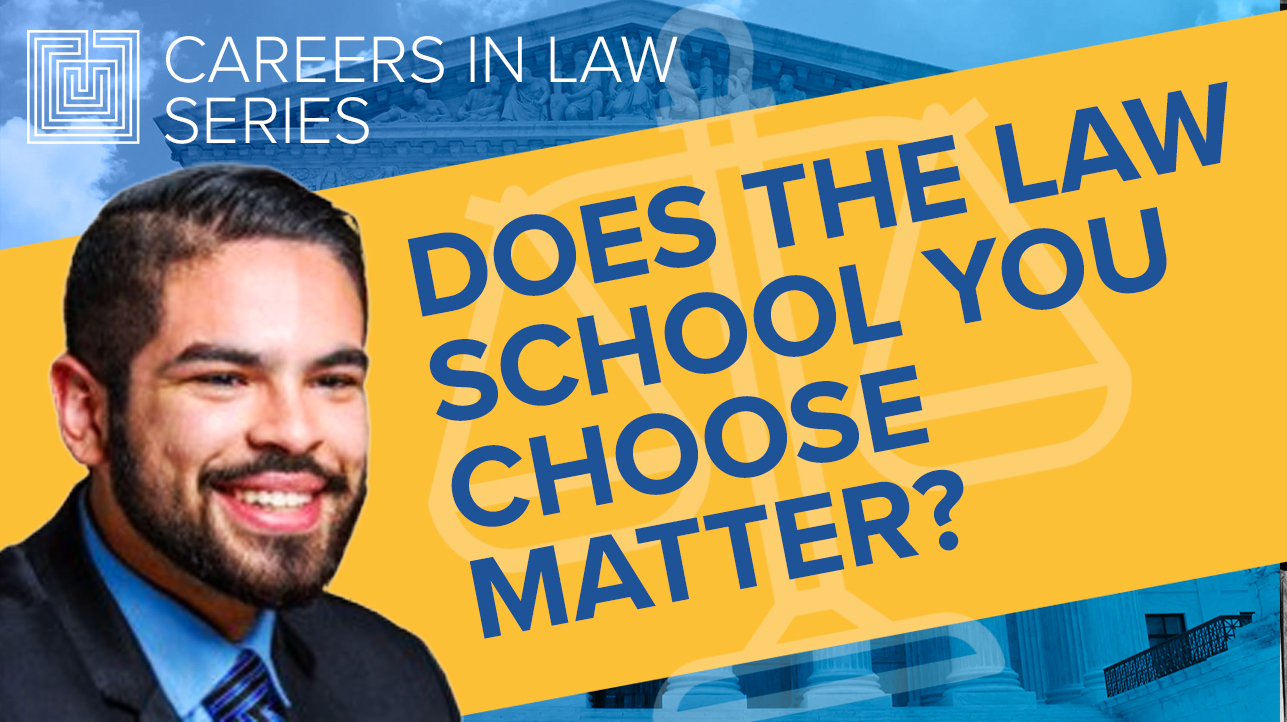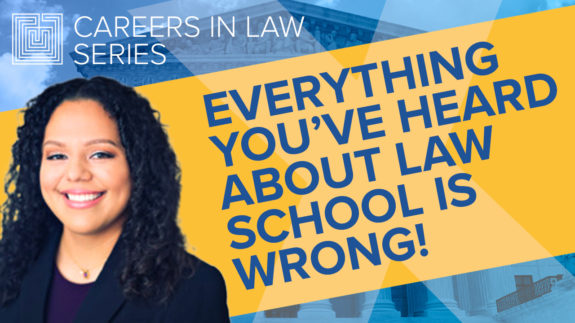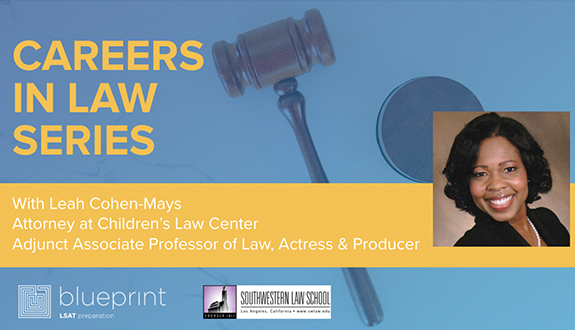Careers in Law Episode 4: Immigration Policy with Andres Holguin-Flores
The Blueprint Careers in Law Series ends it’s Public Interest/Social Justice Law focus with Andres Holguin-Flores, a staff attorney at the Mexican American Legal Defense and Educational Fund (MALDEF). Andres comes from a long line of social justice law advocates—unsurprisingly, he’s not the first in his family to become a lawyer.
Andres and MALDEF have helped fight many cases against the federal government’s unconstitutional actions towards the immigrant community. Some of his accomplishments include successfully removing the citizenship status question off the U.S. Census and filing a suit over unpaid COVID stimulus checks. In this interview with Blueprint, Andres talks about his journey to becoming a successful attorney, the importance of clerkships in law school, his work on immigration policy, and the secret weapon he used to prep for the LSAT.
Watch the full Careers in Law episode below to listen to Andres’ story!
Did you know you were going to pursue something in the legal profession, something public interest law related? Was there anything that you did during your undergraduate college years to get ready for law school? What advice would you give to people in those similar shoes?
“Once I knew that I wanted to pursue a career in the legal field, I started taking courses that were interpreting the law..There was a number of courses at [UC] Santa Barbara that offered that type of analysis because we had a law and society program. When I got there, it had merged into different other studies, so I was able to learn just from those programs and those professors who are attorneys and are interpreting the law as they see it now in an academic format. It gave me an opportunity to really learn like what the parameters of the law could be, because in terms of what we do at MALDEF, you have to be very creative because a lot of times there is no case that’s on point with what we want to do, so you have to go outside the borders…After that, I just took other courses that were about just looking at the parameters outside of the legal system that existed for individuals in the United States.”
Now, I know you took a year off before actually attending law school. What did you do during that year to fill your days and any advice that you would give to people in that similar spot? Should you go right after undergrad, take some time off? What are your thoughts on all of that?
“I would say that I would recommend everyone take time to study for the LSAT, the LSAT. Law school is a complete different approach than undergrad. Undergrad, when you go to your first day of classes, you’re not expected to know or have read the materials. You get the syllabus, it’s all that. In law school, you’re expected to be on point. I took a year off between undergrad and law school and I took a Blueprint course, and I’m super grateful I did.”
What advice could you give to students who just aren’t really sure whether law school is the answer for them? How can they get a better idea of what that might look like?
“I would say that the first year of law school is not the best indication of what it’s like for your career to eventually be. I mean, every school from, I would say ITT Tech School of Law to Yale and Harvard, have basically the same first year curriculum, I bet. The first year is never a good indication of what it’s actually like to be a lawyer. I would say that it’s probably a great idea to at least do an internship or volunteer in a law office, any law office, but more specifically in a law office that you anticipate that you may go into that area of law you’re in. That way you can just be ready on your feet because every area of law is a little bit different. Whether it’s immigration, whether it’s family law, whether it’s bankruptcy, whether it’s civil, whether it’s criminal, all of those types of cases have a different baseline and the life of those cases are completely different. Just to get exposure into one of those bases is incredibly valuable.”
Is it true that where you go to law school is most likely where you will end up practicing law since you’re more plugged with internships, et cetera, in that area?
“At the end of the day, what law school you go to, it may help in a lot of ways to get your first job or some job, right, or even an internship and externship. But ultimately it’s the work that you do and your passion. If you want to go into public interest, it’s your passion for the work and demonstrating that desire will get you further than anything. That’s how I’ve seen it and that’s how I’ve also recommended our office to hire individuals.”
Talk to me a little bit about clerkships. I know you did a clerkship. What are they? Tell students why are they important, and do you have any tips for people on how they might score a clerkship during their career?
“Absolutely. I was lucky enough to do two clerkships. I was very lucky….”
Watch the Blueprint Careers in Law Episode 4 to find out what clerkships are, how to find them, an in-depth look at Andres’ work, and whether you need to know what area of law you want to practice when writing a personal statement!
Note: Responses were edited for clarity.
Don’t miss our other Careers in Law Public Interest and Social Justice Law Episodes!
Careers in Law Episode 1: Housing & Homeless Prevention with Ugochi Anaebere-Nicholson
Careers in Law Episode 2: Children’s Rights Law with Leah Cohen-Mays
Careers in Law Episode 3: Immigration Rights with Karen Aguilar
Looking for a career in immigration policy law or another area of public interest and social justice law? You’ll need to take the LSAT first! Prep at your own pace with the Blueprint LSAT Self-Paced LSAT Course, with an instructor in our Live Course LSAT Classes, or one-on-one with a private LSAT tutor.
<!–[if lte IE 8]>
<![endif]–> hbspt.cta.load(7934320, ‘d1acf808-f23a-4ca3-8901-efe84c5ed084’, {“region”:”na1″});
hbspt.cta.load(7934320, ‘d1acf808-f23a-4ca3-8901-efe84c5ed084’, {“region”:”na1″});



